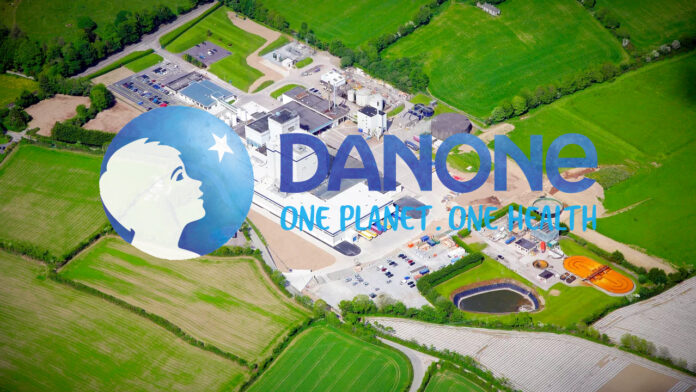Danone has launched an Industry 5.0 Academy to train 20,000 staff in AI and digital tech by 2026, driving global manufacturing transformation as part of its broader Renew Danone strategy for smarter operations.
In sum – what to know:
AI operations – new Danone AI academy in Poland aims to upskill 20,000 factory staff in AI by 2026.
Industry 5.0 – push includes AI-driven decision-making, digital twins, and a 10-site innovation network
Digital change – ongoing Renew Danone strategy ties digital training to productivity and sustainability.
French food and beverage manufacturer Danone has opened a so-called ‘Industry 5.0 Academy’ to train 20,000 operational staff in digital technology and artificial intelligence (AI) by next year (2026). The academy is part of its digital manufacturing strategy, geared to improve the productivity, sustainability, resilience, and flexibility of its global operations. Danone has 183 production sites around the world; the new academy cohort will be taken from all.
The new facility is located at the company’s Nutricia factory in Opole, in southern Poland. (The Nutricia brand specialises in therapeutic food and infant formula.) The site in Opole is listed as one of the World Economic Forum’s ‘global digital lighthouse’ venues. Training will cover advanced automation, AI prompt writing, and data-enabled decision-making; modules will be delivered in person and online.
Indeed, the Paris-based firm has a burgeoning reputation as a digital progressive. It is using AI – or data analytics and machine learning, marketed as AI – variously for predictive maintenance (“smart sensors detect vibrations and temperature changes to anticipate machine issues before they occur”), generative AI agents (“AI assistants analyse production line data”), ‘AI decision-making’ (“to optimise processes, such as spray drying in baby formula production”), and digital twins (“AI powered simulations… to test new recipes and production scenarios virtually”).
It will also create a “new network of 10 pioneering factories” to pilot disruptive smart manufacturing (“digital factory of the future”) models, it said. “The academy is just the beginning,” said Vikram Agarwal, chief operations officer at the firm. “Our ambition is to set new industry standards for human-machine collaboration, so we can better service our customers, consumers, and patients around the world.”
A year ago, Danone signed with US software giant Microsoft to “explore” a multi-year collaboration to integrate AI throughout its operations. It said at the time, the pair would launch a ‘Danone Microsoft AI Academy’, dedicated to upskilling all Danone employees to ensure that all Danoners are equipped with the AI and digital tools they need to thrive in the new AI-driven economy. Presumably, the new academy is the upshot, in some fashion.
There was no reference to Microsoft in the latest release. But the original remit, from a year ago, talked about upskilling or reskilling around 100,000 Danone employees “to the jobs of the future”, as well as attracting new AI talent. The duo talk about AI solutions and use cases for “all of Danone’s functions”, as well as for an “AI-enabled supply chain”. As many as 50,000 staff are already in position to leverage AI in their day-to-day work, they said – with Microsoft Copilot, and suchlike.
Danone employs around 90,000 people, and sells products in around 120 markets. Its 2024 sales revenue was €27.4 billion. Its brands include Actimel, Activia, Alpro, Aptamil, Danette, Danio, Evian, Nutricia, Nutrilon, and Volvic.
Vikram Agarwal, chief operations officer at Danone, said of the new initiative: “The global manufacturing sector faces a significant shortfall of skilled workers. It’s a commercial imperative for us to train existing talent… to be active participants in Industry 5.0. Technologies like AI and robotics are already reshaping how we operate – but their true potential lies in the hands of our people. The [academy] is about how we bring that vision to life… Our ambition is to set new industry standards for human-machine collaboration.”
It’s a key pillar of our Renew Danone strategy and will create long-term value for all our stakeholders.
Meanwhile, Danone is investing in a Digital Lab (D-Lab) in Singapore, focused on ‘digital science, data analytics, and AI-driven health solutions’. Danone has a partnership with the Singapore Economic Development Board (EDB), with a joint initiative around ‘digital health’ since 2018. Danone’s research and innovation network spans multiple continents, anchored by flagship centres in Paris, France, and Utrecht, Netherlands.
It has a concerted co-innovation programme with partners, with a whole bunch of strategic agreements (19, as of September) and joint business development plans (eight) across ingredients, packaging, manufacturing, agriculture, and indirect suppliers. It said it wanted to double its number of partnerships over the next two years, as part of this Partner for Growth (P4G) scheme.
Like the new academy, and its tyre-kicking on AI with Microsoft, its partner programme is part of its so-called Renew Danone strategy, which is based around “science and technology, precision capacity creation, cost competitiveness and sustainability”. New digital technologies and techniques are a core part of the whole plan – to enable its staff to bring higher efficiency, productivity, and sustainability to its operations, as it repeatedly notes.

